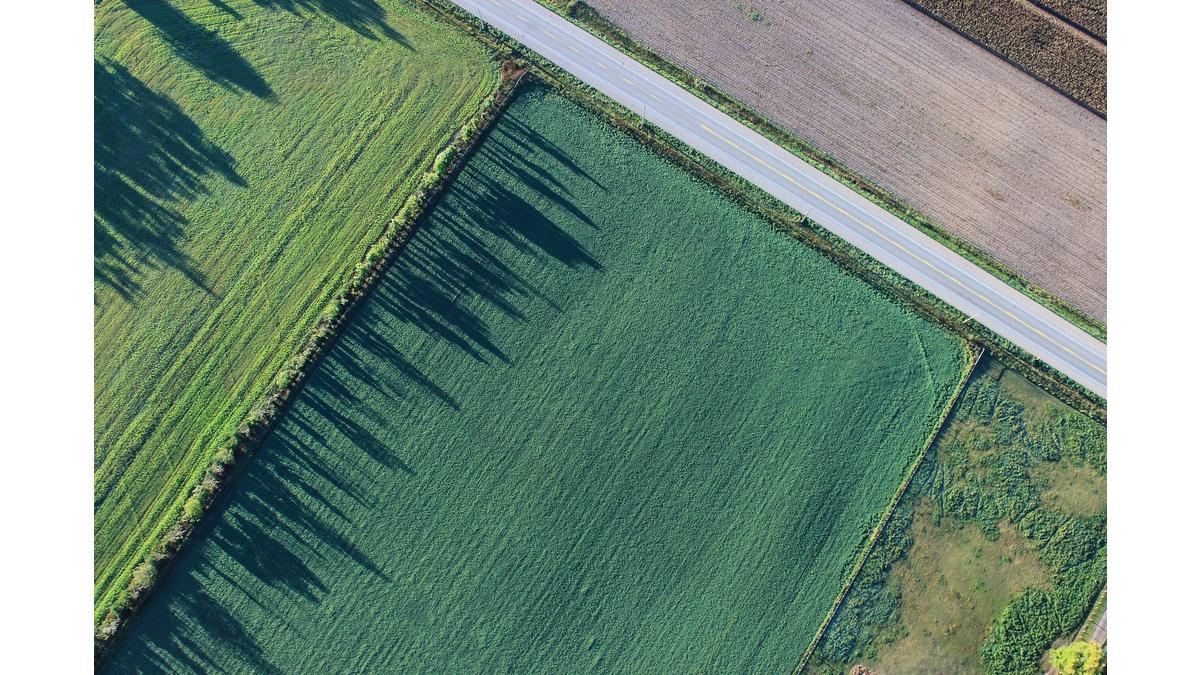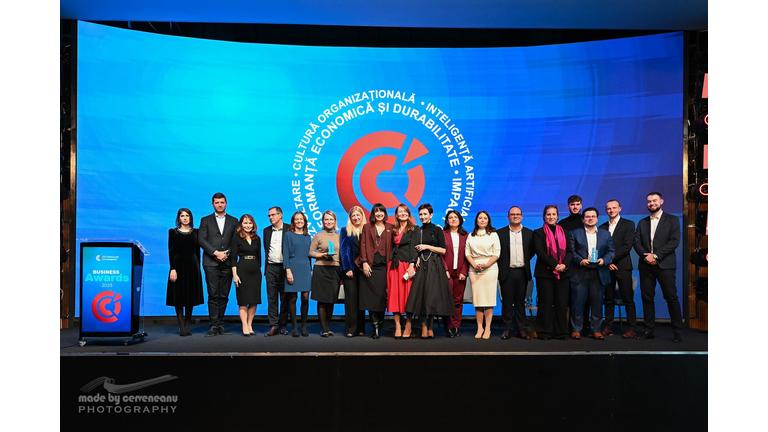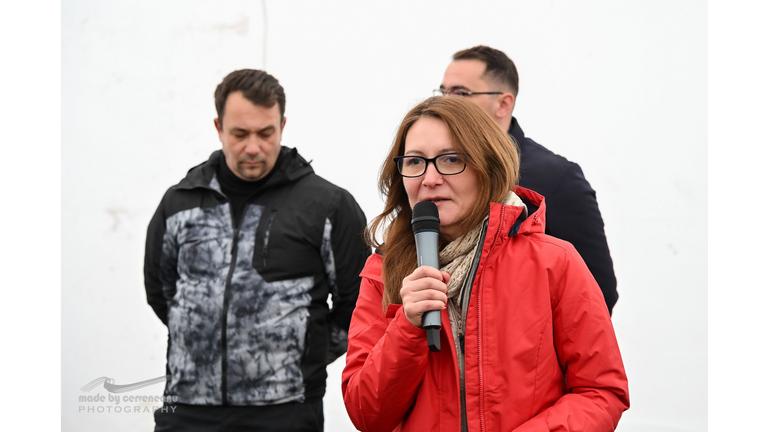Communication - Presse • Veille
#flashinfo, 23 February. New conditions for sale and purchase of agricultural land outside built-up areas

An article by Letitia Silaghi – Senior Associate PETERKA & PARTNERS Romania
Law no. 175/2020 amending Law no. 17/2014 on certain measures regarding the sale and purchase of agricultural land outside of built-up areas and amending Law no. 268/2001 regarding the privatization of companies managing the state’s publicly and privately owned agricultural land and for the establishment of the State Property Agency (hereinafter referred to as ‘Law no. 175/2020’) was published in the Official Gazette on 14 August 2020, after a long delay and debates on its constitutionality, and entered into force on 13 October 2020.
The changes brought by Law no. 175/2020 are part of a larger European context, similar provisions have been introduced in a significant number of countries across the EU. The official purpose of the governments involved was the protection of local farmers and development of national agricultural activity. Nevertheless, despite the good intentions, similar legislation adopted in other countries have been censured by the European Court of Justice, the European Commission, and the European Court for Human Rights as they decided that the enacted regulations breached several fundamental rights established by EU treaties and regulations.
Law 175/2020 stipulates that its provisions apply to any sale-purchase of agricultural land located outside a built-up area, irrespective of whether the process was ongoing on the date when the law came into force or was initiated afterwards. Thus, its entering into force correlated with the absence of implementation norms, brought a great deal of unclarity on the market and practically any ongoing transaction regarding sale-purchase of agricultural land outside of built-up areas was blocked.
In order to resolve (at least temporarily) the situation, the Romanian Government enacted Emergency Ordinance No. 203/2020 on some measures aimed at regulating the sale-purchase of agricultural land situated outside built-up areas, which came into effect on 25 November 2020.
Emergency Ordinance No. 203/2020 provided the rules that derogate from Law 175/2020, applicable to the sale-purchase of agricultural land situated outside built-up areas based on requests for the display of sale offers filed on or prior to 13 October 2020. However, its provisions were applicable only until 31 January 2021. Thus, the sale-purchase process of agricultural land situated outside of built-up areas for which requests for the display of sale offers had been filed on or prior to 13 October 2020 had to be finalized by 31 January 2021 at the latest, the sanction for not meeting the above-mentioned deadline being the fact that the sellers need to reinitiate the sale-purchase process regarding agricultural land in accordance with the new requirements set forth by Law 175/2020.
On 8 February, the relevant Ministries involved in this process passed the implementation norms to Law no. 175/2020, thus creating the legal framework for continuing the transactions regarding the sale-purchase process of agricultural land situated outside of built-up areas.
Main changes brought by Law no. 175/2020
• Categories of pre-emptors
Law 175/2020 amends the provisions regarding the beneficiaries of pre-emption rights and establishes a new pre-emption order and new conditions for the purchase of properties for all buyers. The transfer by sale of agricultural land located outside of a built-up area must respect the right of pre-emption, at the same price, and under the same conditions.
The sale of agricultural land outside of built-up areas must comply with the following order:
(i) 1st rank beneficiaries: co-owners, together with 1st degree relatives, spouses, relatives and relatives-in-law up to the 3rd degree, inclusively;
(ii) 2nd rank beneficiaries: lessees, together with owners of agricultural investments in fruit trees, vineyards, hops, exclusively private irrigations – if the agricultural investments in the fruit trees, vineyards, hopsor irrigations are located on the land for sale, these land may be purchased with priority by the owners of such investments;
(iii) 3rd rank beneficiaries: owners and/or lessees of agricultural land neighbouring the land on sale ̶ as for the lessees, Law 175/2020 establishes a series of conditions that need to observed;
(iv) 4th rank beneficiaries: young farmers;
(v) 5th rank beneficiaries: the Academy of Agricultural and Forestry Sciences “Gheorghe Ionescu-Șișești” and certain research-development facilities and educational establishments, under certain conditions;
(vi) 6th rank beneficiaries: natural persons with a domicile/residence in the administrative-territorial units where the land is located or in the neighbouring administrative-territorial units; and
(vii) 7th rank beneficiary: the Romanian State through the State Property Agency.
Thus, it can be noticed, that the old pre-emptors maintain their previous order together with other persons, and new categories of pre-emptors are being introduced (the categories from point (iv) to point (vi) above).
• Special conditions for pre-emptors to exercise their rights
For 2nd rank beneficiaries, which includes legal entity lessees or their associations, the conditions for exercising the pre-emption right are: (i) to hold this capacity under a valid lease contract concluded and registered in accordance with the legal provisions, for at least one year before the date of the offer to sell and (ii) to prove the domicile/residence located on the national territory, for a period of 5 years prior to the registration of the land sale offer located outside city limits.
Also, special conditions are provided in respect of young farmers. A “young farmer” is defined by EU law as “a person up to 40 years old at the time of submission of the application, who has the appropriate professional skills and qualifications and who is established for the first time on an agricultural holding as the head of that holding”.
The conditions for young farmers are: (i) to carry out activities in zootechnics and (ii) to have the domicile/residence established on the national territory for a period of at least 1 year prior to registration of the offer for sale of agricultural land located outside city limits.
• Sale of land to other persons than pre-emptors
If the pre-emptors do not express their intention to purchase the land within the legal term, at first it can be sold only to natural persons or legal entitiess who observe the cumulative conditions presented below. The potential purchasers must express their intention to buy within 30 days as of the expiry of the 45 business days provided for pre-emptors.
Natural persons/Individuals must fulfil the following cumulative conditions, for a period of at least 5 years prior to the registration of the sale offer: (i) to have their domicile/residence in Romania; (ii) to perform agricultural activities in Romania; (iii) to be registered with the Romanian tax authorities.
Legal entities must fulfil the following cumulative conditions, for a period of at least 5 years prior to the registration of the sale offer: (i) to have their registered seat and/or secondary office located in Romania; (ii) to perform agricultural activities in Romania; (iii) to present proof that at least 75% of the total income for the last 5 fiscal years represents income from agricultural activities; (iv) the shareholder controlling the company must have a domicile in Romania; (v) if the shareholder controlling the company is another legal entity, then the shareholder controlling the latter company must have a domicile in Romania.
Ultimately, if (i) the pre-emptors do not exercise their pre-emption rights within the provided 45-day deadline and (ii) the potential buyers do not provide proof that they fulfil the above conditions within the 30-days period provided by the law, the agricultural land is freely transferable to any individual or legal entity, under the conditions provided by Law no. 175/2020.
Thus, by imposing certain domiciliation conditions on the potential buyer, it seems that one of the most important changes introduced by the amendments to Law 17/2014 is that no foreign individual is permitted to buy, directly, agricultural land in Romania.
• The preservation of the destination of agricultural land
Under Law no. 175/2020, the owners of agricultural land outside of built-up areas must use them exclusively for the agricultural activities carried out at the moment of purchase. If there are agricultural investments in fruit trees, vineyards, hops and exclusively private irrigations, the agricultural use of such investment will be maintained.
Even though it was expected that the implementation norms would clarify whether the provisions above will only be applicable for acquisitions that will occur after Law no. 175/2020 entered into force or if it will also affect prior acquisitions, such clarification was not provided.
Such provision is expected to have an impact on related business activities in the energy sector, petrol exploitation, as well as the construction of industrial developments.
• Elimination of seller's option between pre-emptor offers
Prior to the amendment, if during the pre-emption period, several pre-emptors of different ranks expressed their intention to purchase in writing, at the same price and under the same conditions or several pre-emptors of the same rank expressed their intention to purchase in writing and no other pre-emptor of higher rank had accepted the offer, at the same price and under the same conditions, the seller had the right to choose the buyer.
Under the new law, the buyer must respect the rank of pre-emptors and the additional order established by Law no. 175/2020 and detailed above.
• New taxes introduced
According to Law no. 175/2020, it is possible to sell agricultural land outside of built-up areas before the expiry of an 8-year term as of the acquisition of the land. However, in order to do so, there is an obligation to pay an 80% tax on the amount representing the difference between the sale price and the purchase price, based on the applicable grid of notaries for the respective period.
As for the direct or indirect sale of the controlling stake in companies that own agricultural land outside of built-up areas representing more than 25% of their assets, within an 8-year term as of the acquisition of the land, the seller will have to pay an 80% tax upon the difference of the respective acquisition value and the value of the land at the time of transfer of the controlling stake, as calculated according to the applicable grid of notaries.
The obligation to pay the 80% tax does not apply to the reorganization or reallocation of assets within the same group of companies.
Selling without complying with the above-mentioned tax obligations is sanctioned with absolute nullity.
Most probably such provision will have an impact on the payment allocation of this tax in the sale purchase agreements between the seller and the buyer, including by artificially increasing the price of sale in order to cover the loss of profit.
• Changes in legal terms/deadlines
Certain legal terms have been extended, such as the term within which the pre-emptor must express their written intention to purchase (from 30 calendar days to 45 business days) and the period of time for displaying the sale offer at City Hall (from 30 calendar days to 45 business days).
• Introduction of additional contraventions and increase of the amount of fines
According to the new law, the breach of the following obligations is considered an administrative offence: (i) failure to respect the right of pre-emption and the rank of pre-emptors; (ii) failure to respect the conditions that must be met by pre-emptors and (iii) failure to transfer the land, either through an asset or share deal, before the 8th anniversary of the purchase, without respecting the obligation to pay 80% tax on the amount representing the difference between the sale price and the purchase price.
The amount of fines increases from RON 50,000 – 100,000 to RON 100,000 – 200,000 (from approximately EUR 10,000 – 20,000 to EUR 20,000 – 40,000).
• Sanction of absolute nullity
In the current form of Law 17/2020, the sale of agricultural land outside of built-up areas without respecting the right of pre-emption, or without obtaining the permits provided for in Law 17/2020, is sanctioned with absolute nullity.
In this respect, it is important to note that the new sanction can be invoked at any time and by any interested person and is not subject to any time limitation, compared with the previous sanction which was time-barred (i.e., 3 years), meaning that the transfer could have been legitimized after a certain period of time.
For any further information and assistance with respect to the above and any other legal matters, please do not hesitate to contact us.
An article by:
Letitia Silaghi – Senior Associate
PETERKA & PARTNERS Romania
www.peterkapartners.com


